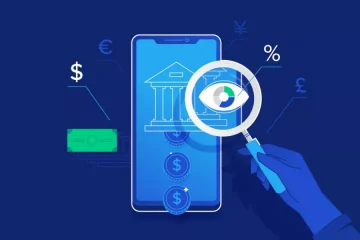Benefits of Fintech: A Beginner’s Guide to Digital Finance

Benefits of Fintech | Mykaba
In today’s fast-paced world, technology has revolutionized the way we live, work, and even handle our finances. Financial technology, commonly known as fintech, has taken the financial world by storm, and it’s rapidly changing the way we interact with money. But with so many digital options available, navigating the world of fintech can be overwhelming, especially for beginners. That’s where this beginner’s guide comes in handy. In this guide, we’ll explore the basics of fintech, including its definition, how it works, and the different types of fintech available. From mobile banking and payment apps to robo-advisors and cryptocurrency, we’ll cover all the essentials you need to know to get started in the world of digital finance. So, whether you’re looking to streamline your finances, invest your money, or simply stay up-to-date on the latest fintech trends, this beginner’s guide has got you covered.
The Evolution of Payments
The evolution of payments can be traced back to the days of bartering and trading goods, which then progressed to the use of physical currency. With the advent of technology, payments have undergone a significant transformation, and today, we have a wide array of payment options available, thanks to fintech.
Mobile payments have become increasingly popular, and with the use of smartphones, people can now make payments through mobile wallets, such as Apple Pay, Samsung Pay, and Google Pay. These mobile wallets offer a convenient and secure way of making payments, eliminating the need to carry cash or cards.
Another popular payment option is peer-to-peer (P2P) payments, which allow individuals to transfer funds directly to each other’s accounts without the need for intermediaries such as banks. Popular P2P payment apps include Venmo, Cash App, and Zelle.
In addition to these, we also have contactless payments, which allow for payment transactions using near-field communication (NFC) technology. With contactless payments, users can make payments by simply tapping their cards or smartphones on a payment terminal.
FinTech and Investments
Fintech has also transformed the way we invest our money. With the rise of robo-advisors, individuals can now invest their money in a diversified portfolio of stocks and bonds with minimal human intervention. Robo-advisors use algorithms to analyze an individual’s investment goals and risk tolerance to provide personalized investment recommendations.
Another popular investment option is peer-to-peer lending, which allows individuals to lend or borrow money directly from each other, without the need for traditional financial institutions such as banks. Peer-to-peer lending platforms, such as LendingClub and Prosper, connect borrowers with investors, offering a more streamlined and cost-effective lending process.
With the rise of cryptocurrency, we also have options for investing in digital currencies such as Bitcoin and Ethereum. Cryptocurrency exchanges allow individuals to buy and sell cryptocurrencies, offering an alternative form of investment.
The Benefits of Fintech for Individuals
Fintech has several benefits for individuals, including convenience, accessibility, and cost-effectiveness. With mobile banking and payment apps, individuals can manage their finances on-the-go, without the need to visit a physical bank branch. Fintech also offers access to financial services for those who may not have had access previously, such as the unbanked or underbanked.
In addition to this, fintech has made financial services more cost-effective. With the rise of online banks and digital-only financial institutions, individuals can now benefit from lower fees, higher interest rates, and better rewards programs.
Fintech also offers a more personalized approach to financial services, with the use of big data and machine learning algorithms. These technologies allow financial institutions to offer personalized recommendations and services based on an individual’s financial behavior and preferences.
The Benefits of Fintech for Businesses
Fintech has also revolutionized the way businesses operate, offering several benefits such as increased efficiency, cost savings, and better customer experiences. With the use of digital payments and invoicing systems, businesses can streamline their payment processes, reducing the need for manual intervention.
Fintech also offers businesses access to alternative lending options, such as crowdfunding and peer-to-peer lending, providing a more flexible and cost-effective way of raising capital.
In addition to this, fintech has also enabled businesses to offer more personalized and tailored financial services to their customers, enhancing customer experiences and loyalty.
The Future of Fintech
The future of fintech looks promising, with the continued growth and adoption of digital finance. As technology continues to advance, we can expect to see more innovative fintech solutions, such as artificial intelligence and blockchain technology.
Artificial intelligence (AI) has the potential to transform the way financial institutions operate, with the use of machine learning algorithms for fraud detection, personalized financial advice, and risk management.
Blockchain technology offers a secure and transparent way of conducting financial transactions, with the potential to eliminate intermediaries and reduce transaction costs.
The Top Fintech Companies to Watch Out For
There are several fintech companies that have made a significant impact in the financial industry, and are worth keeping an eye on. These include:
- PayPal – a leading digital payment platform that offers a secure and convenient way to send and receive money online.
- Robinhood – a commission-free investment app that allows individuals to trade stocks, ETFs, and cryptocurrencies.
- Square – a payment processing company that offers a suite of financial services, including mobile payments and small business loans.
- Stripe – an online payment processing company that offers businesses a simple and secure way to accept payments online.
- Coinbase – a digital currency exchange that allows individuals to buy, sell, and store cryptocurrencies.
Fintech Regulations and Compliance
As fintech continues to evolve, regulations and compliance will play a crucial role in ensuring the safety and security of financial transactions. Financial institutions must adhere to strict regulations, such as the Know Your Customer (KYC) and Anti-Money Laundering (AML) regulations, to prevent fraudulent activities.
In addition to this, fintech companies must also comply with data privacy laws, such as the General Data Protection Regulation (GDPR) and the California Consumer Privacy Act (CCPA), to protect individuals’ personal and financial data.
Challenges of Fintech Adoption
While fintech offers several benefits, there are also challenges to its adoption. One of the main challenges is the lack of trust in digital financial services, with some individuals still preferring traditional banking methods.
Another challenge is the digital divide, where individuals with limited access to technology or internet connectivity may not be able to benefit from fintech services.
In addition to this, there are also concerns around cybersecurity and data privacy, with the potential for cyber attacks and data breaches.
Conclusion
Fintech has undoubtedly transformed the financial industry, offering individuals and businesses a more convenient, accessible, and cost-effective way of managing their finances. With the continued growth and adoption of digital finance, we can expect to see more innovative fintech solutions in the future. However, it’s crucial to be aware of the challenges and risks associated with fintech, and to ensure that financial transactions are conducted safely and securely. Overall, fintech offers a world of possibilities, and as we navigate the world of digital finance, it’s essential to stay informed and educated about the latest fintech trends and developments.









